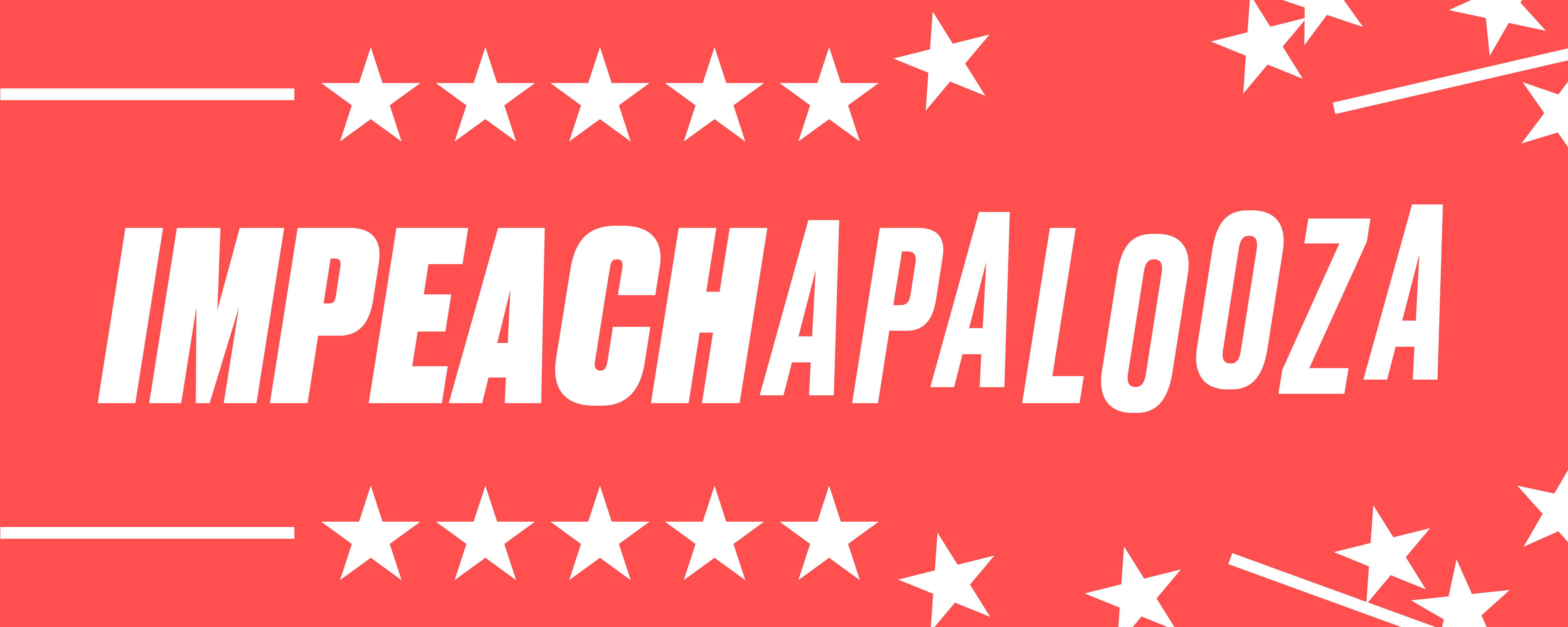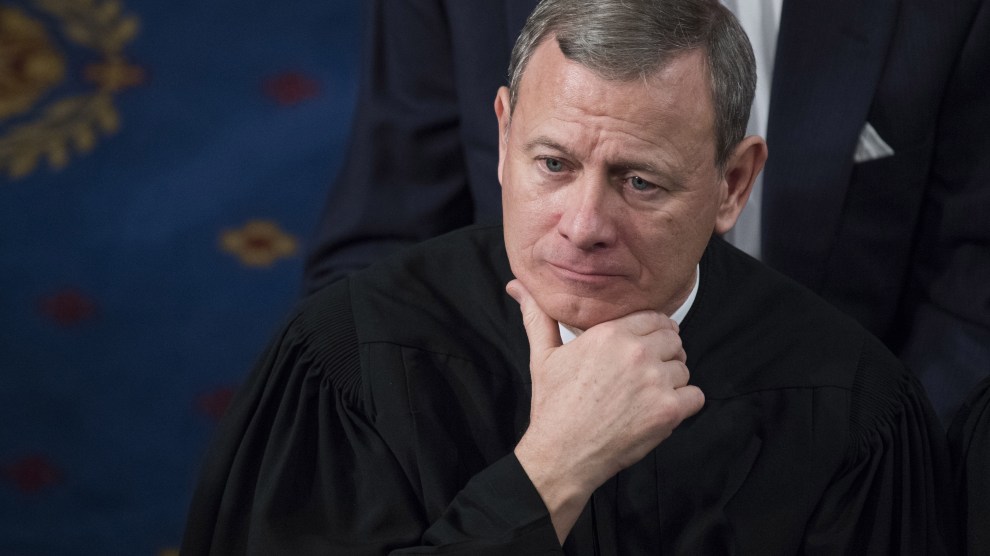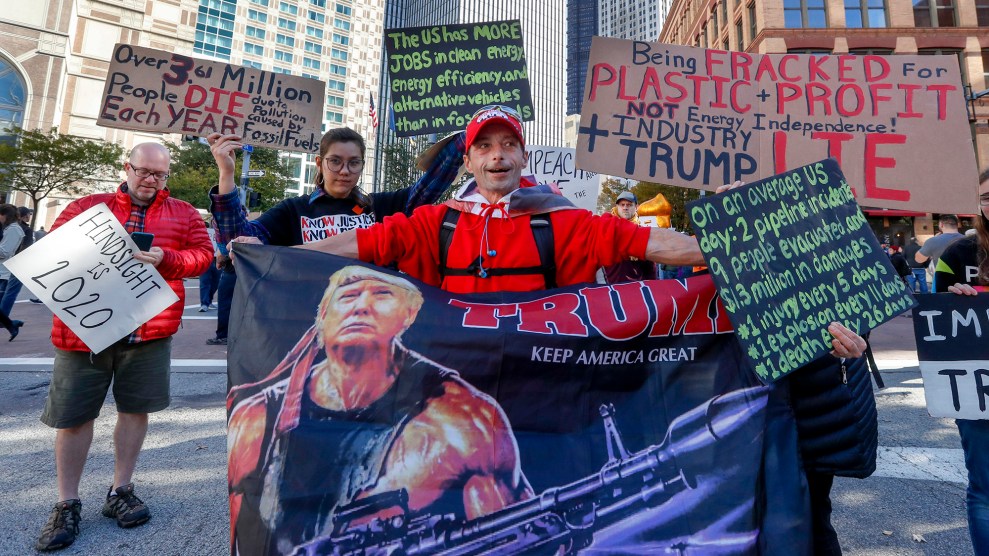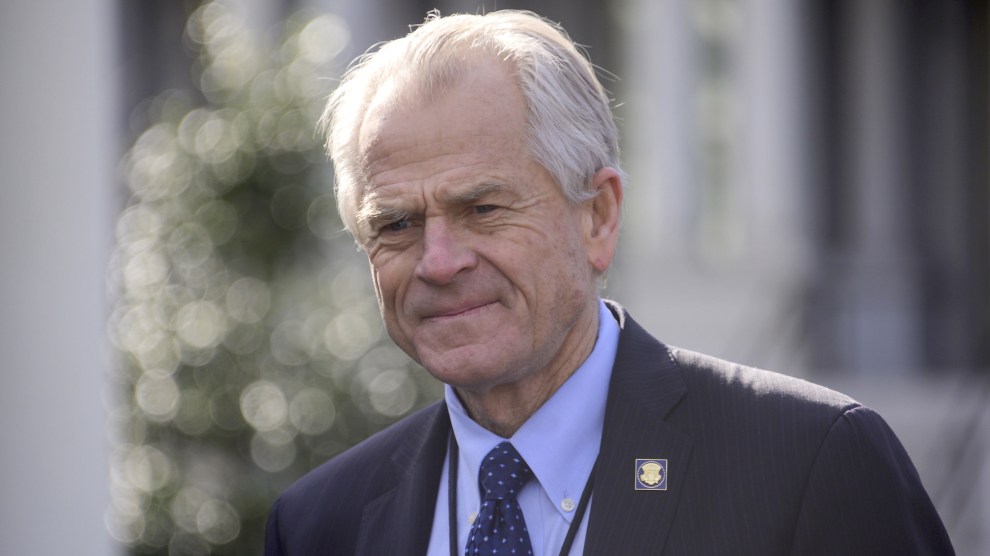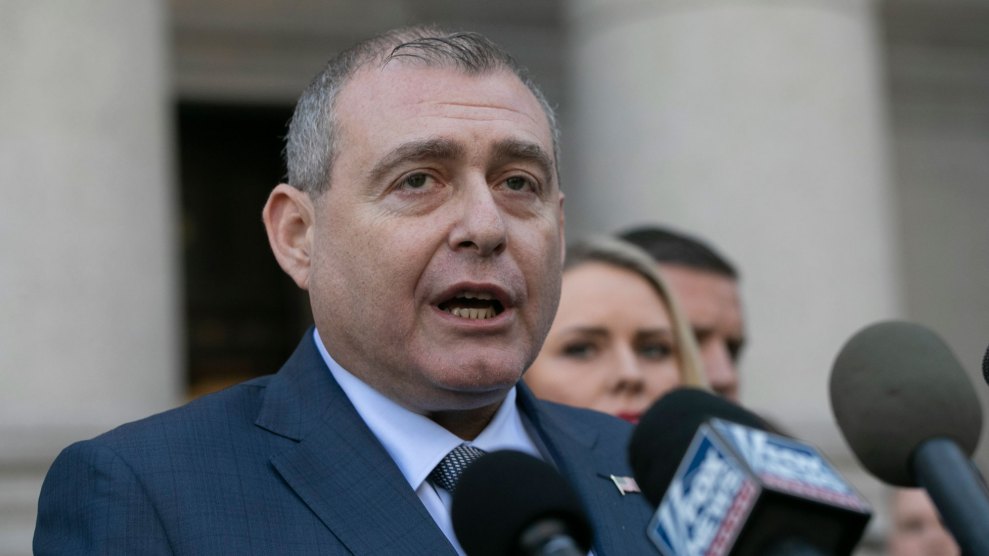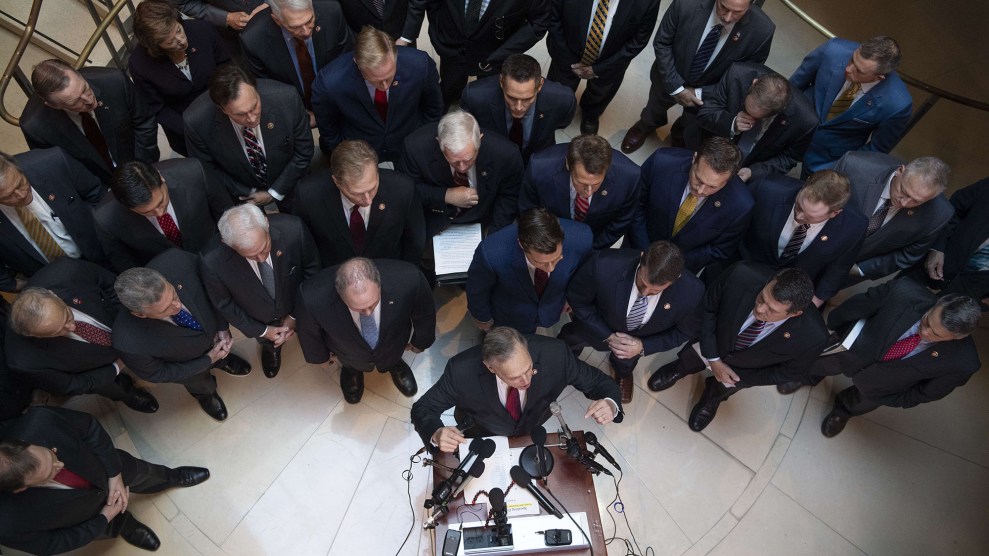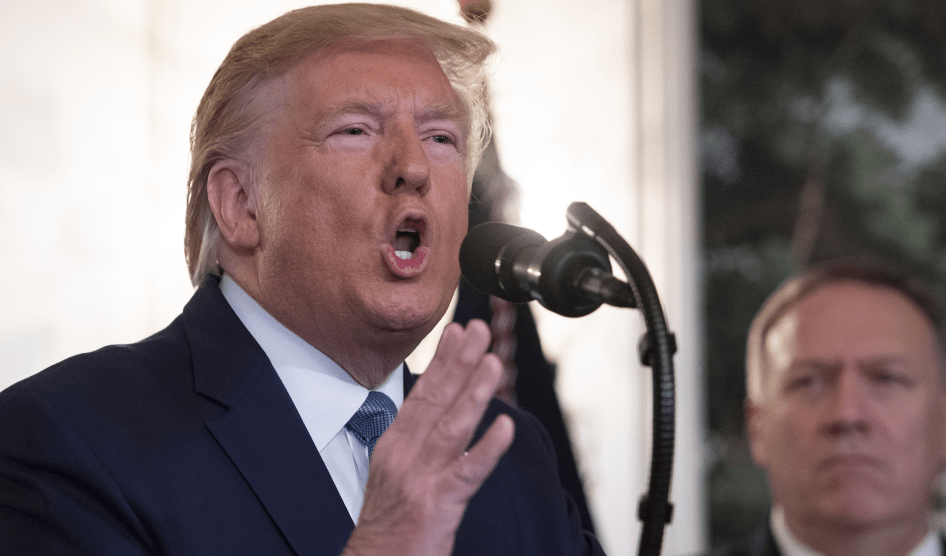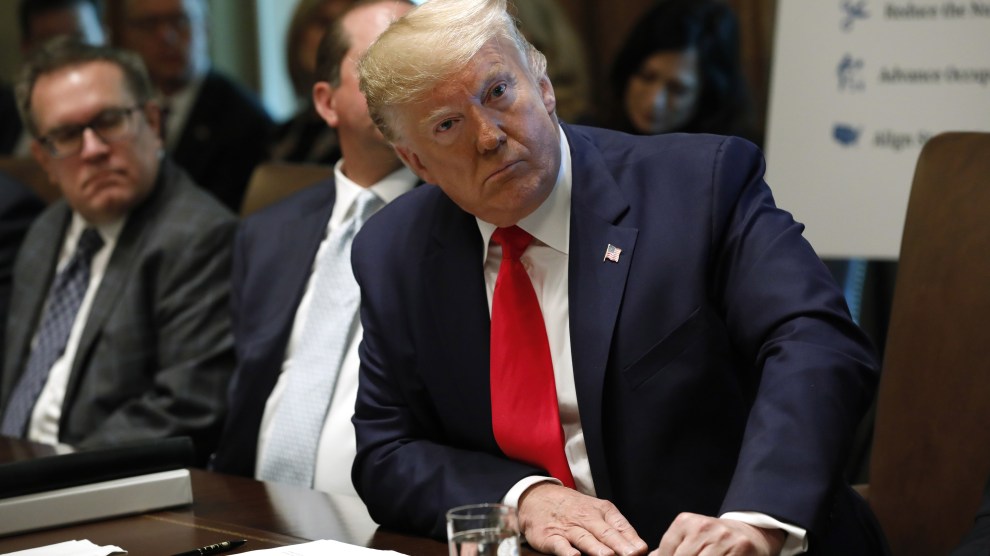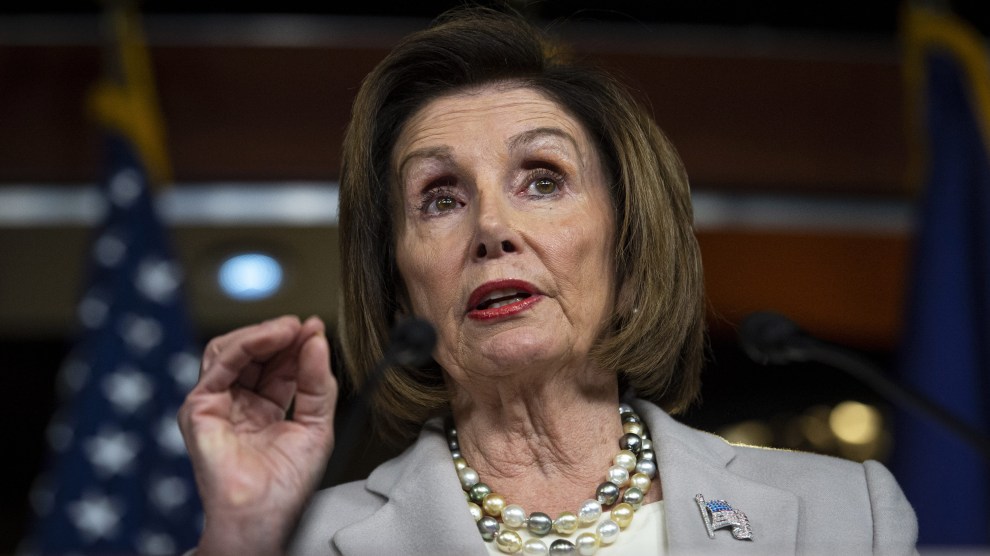
Caroline Brehman/Zuma
The House of Representatives will vote this week on continuing the impeachment investigation and opening proceedings to the public, House Speaker Nancy Pelosi announced Monday.
In a letter addressed “Dear Democratic Colleague,” Pelosi reiterated that the Constitution does not require the House to hold a vote before beginning an impeachment investigation—and noted that a federal court recently agreed with that fact. “Just last week, a federal court confirmed that the House is not required to hold a vote and that imposing such a requirement would be ‘an impermissible intrusion on the House’s constitutional authority,'” she writes. “The Trump Administration has made up this argument—apparently out of whole cloth—in order to justify its unprecedented cover-up, withhold key documents from multiple federal agencies, prevent critical witnesses from cooperating, and defy duly authorized subpoenas.”
“This week, we will bring a resolution to the Floor that affirms the ongoing, existing investigation that is currently being conducted by our committees as part of this impeachment inquiry, including all requests for documents, subpoenas for records and testimony, and any other investigative steps previously taken or to be taken as part of this investigation,” the letter continues. This step will undercut Republicans’ argument and “eliminate any doubt as to whether the Trump Administration may withhold documents, prevent witness testimony, disregard duly authorized subpoenas, or continue obstructing the House of Representatives.”
“Nobody is above the law,” Pelosi concludes.
Read the full letter below:
NEW — Here is Pelosi’s Dear Colleague letter announcing vote on continuing impeachment proceedings and moving them to the public phase pic.twitter.com/OJVWUqR3tQ
— Sam Stein (@samstein) October 28, 2019
